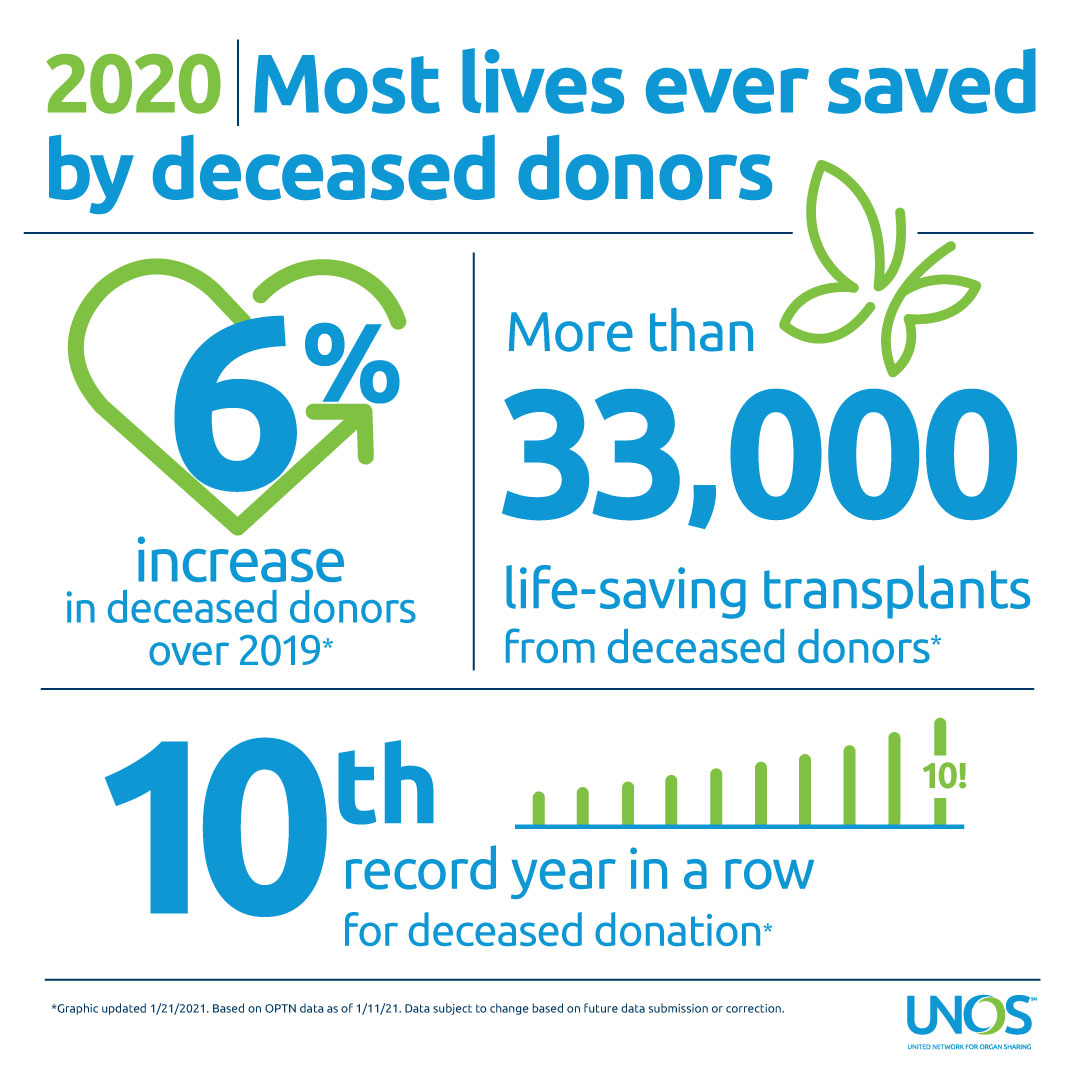The onset of the COVID-19 pandemic posed a serious risk to the work I do as a transplant surgeon and director of a kidney and pancreas transplant program in Washington, D.C. Patient safety is our top priority, and there is still a critical need to complete organ transplants, even—perhaps especially—during these times. If the pandemic had forced transplants to be put on pause, or operations to cease, thousands of lives could have been lost without an opportunity for a second chance.
Our program was able to continue performing transplants in the D.C. area throughout the pandemic, assuring the safety of our patients, their families and health professionals. In fact, 19,004 deceased donor transplants have been performed in the U.S. this year through July 31—550 more than the number of transplants by the same day last year.
And it’s not just our transplant institute that’s been doing well recently—other hospitals are performing transplants at unprecedented rates. At the Vanderbilt Transplant Center, they performed 73 transplants in May, surpassing their typical 45-to-50 transplants per month and setting a new hospital record. At the University of Pittsburgh Medical Center, they doubled the number of lungs and livers they normally transplant in April.
Given the exceptional work of my peers in these challenging times, it’s no surprise that the U.S. organ donation and transplant system is one of the best in world. Even in non-pandemic times, certain areas of the country outperform some of the highest performing countries like Spain. Yet, new regulations with a singular focus on performance of organ procurement organizations (OPOs), which are the groups that recover organs from donors for transplantation, could call that achievement into question and potentially leave thousands of Americans without lifesaving transplants.
Like much of the world, we had to quickly adapt to a new normal. The system is by no means perfect—but it’s working and always improving.
Last year, the Centers for Medicare and Medicaid Services proposed a rule to change the ways OPOs are measured. And while I passionately support ensuring maximum efficiency across the system, the proposed rule change will likely result in the decertification of about three-quarters of the nation’s OPOs. The proposal offers no back-up plan, nor does it take any steps to reduce the long-standing regulatory barriers to OPOs seeking to improve their ability to serve patients by merging or sharing services.
Disruption to the system on any scale is dangerous. With nearly 110,000 people waiting for transplants, a reduction in service—even if temporary—inevitably means lives lost.
The donation and transplant community has long been committed to improving our ability to get organs to those who need them. In recent years, we’ve achieved major advancements, such as improving equity in access to transplant for waitlisted patients and technology innovations intended to speed the offer process in real time.
More recently, I co-chaired a committee of organ donation and transplant leaders, patients, donor families, and government representatives from around the country, and we shared recommendations for collaborative improvements to the system as a whole, from data sources for improved regulatory oversight of OPOs and transplant hospitals to a slate of performance monitoring metrics and effective practices for organ recovery and transport. We know every part of the system can be improved—and both transplant hospitals and OPOs are committed to doing their part.
CMS’ proposed rule change will not help achieve these goals. Decertifying OPOs based on death certificate data that is well-documented to be inaccurate will sow chaos, not progress.
Rather than disrupting a single part of the system with a misperception that this will drive successful reform, we must be able to continue improving what we’re already doing well, while also implementing additional changes to make the system even better.
The COVID-19 pandemic has been incredibly taxing on the health care system, and the organ donation and transplantation system is no different. When we look back, we’ll know we performed more transplants during the pandemic—a testament to the system’s resilience, even in times of great need. I, for one, couldn’t be prouder.
Matthew Cooper, M.D., FACS, serves as the UNOS Board of Directors vice president/president-elect.


